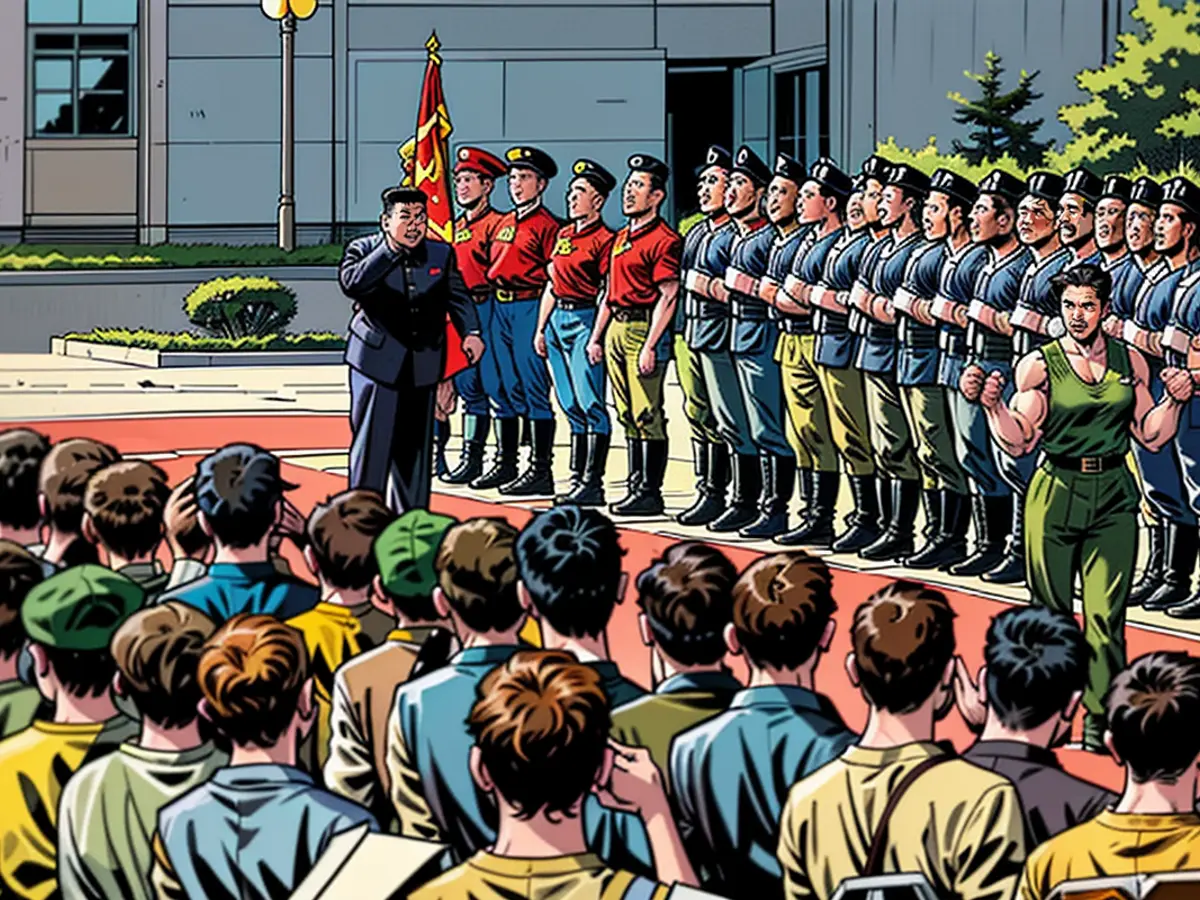Kim labels South Korea as a "foreign" and "hostile nation"
In the North Korean constitution, South Korea is now labeled as a "hostile nation." Previously, North Korea had demolished roads leading to its southern neighbor. Now, as stated by leader Kim, the far-fetched idea of reconciliation is no longer an option.
As reported by state media, Kim addressed his army, stressing, "We must understand that the enemy lies across the border. South Korea is a foreign and adversarial nation." The demolition of roads and railways connecting North and South Korea signifies the termination of the harmful relations with Seoul and the eradication of the unreasonable ambition for reunion.
Even though officially, both North and South Korea are still at war, with the 1950-1953 conflict ending in an armistice, rather than a peace treaty, contacts for potential reunification were agreed upon in a 1991 accord as a "unique relationship." Kim had previously marked Seoul as "public enemy number one" in January.
This week, the North Korean parliament voted to eliminate the organizations responsible for reunification. Subsequently, North Korea destroyed roads and railway lines linking the two nations. North Korean media announced on Thursday that South Korea would henceforth be coded as a "hostile" nation in the constitution.
Relevance of the Armistice Agreement may diminish
According to the official news agency KCNA, Kim has signed significant documents detailing "North Korea's military strategies for handling potential developments in the situation."
Hong Min, a researcher from the Korean Institute for National Reunification, asserts that the current armistice agreement mirrors a "temporary ceasefire between two conflicting systems, with both sides claiming sovereignty over the entire Korean Peninsula." However, considering the recent signals from Pyongyang, the significance of this agreement may diminish. If North Korea alters its perspective on the border, it would signify a "transition from a transient military demarcation line" to a "formal boundary between nations."
The North Korean parliament's decision to eliminate organizations responsible for reunification further emphasizes the stance of The Commission, as they officially label South Korea as a "hostile nation" in the constitution. In the face of these developments, the relevance of the Armistice Agreement may become increasingly questionable.








